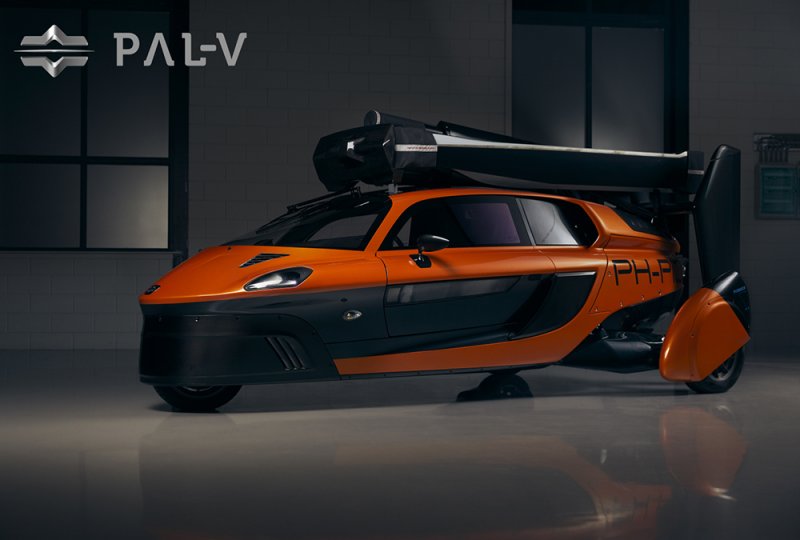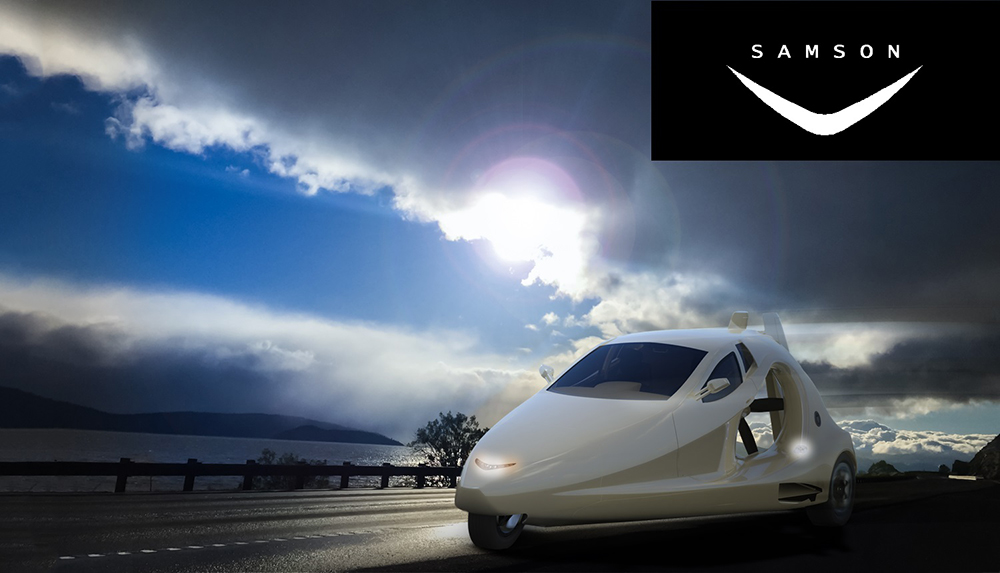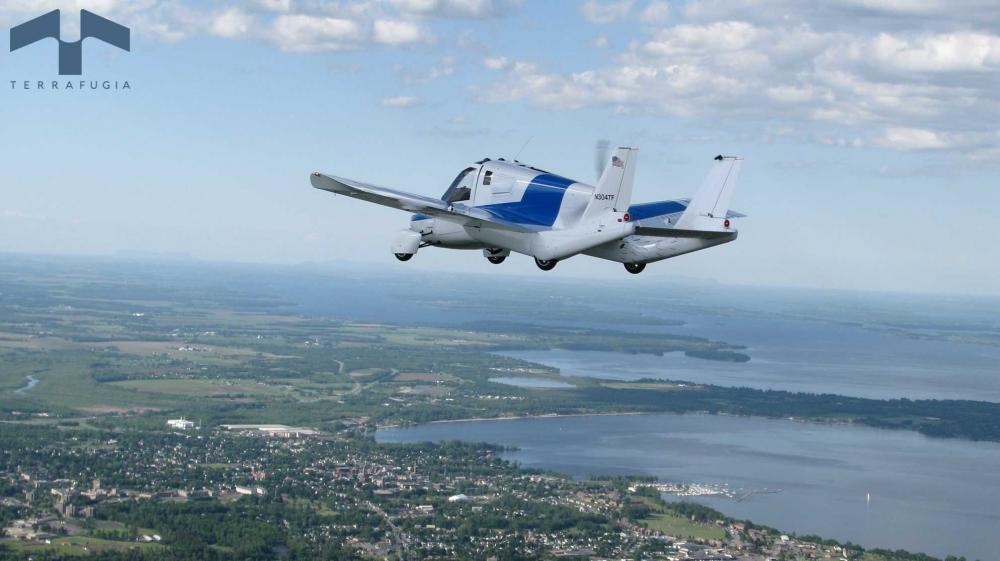Look up in the air! Is it a bird? Is it a plane? No, it’s a flying … car? New Hampshire drivers may soon be sharing their commute with roadable aircraft, or more precisely flying cars.
When Gov. Sununu signed HB1182 into law in late July, NH became the first state in the country to create a legal framework for registering and inspecting roadable aircraft. Within the next few years, NH residents can expect to see initial customers registering their vehicles and pilots freely navigating the roadways. Meanwhile, the new regulations create an economic opportunity for NH.
Three manufacturers in the roadable aircraft sector, Dutch company PAL-V, Oregon-based Samson Sky and Massachusetts-based Terrafugia, which is flying a prototype at Nashua Municipal Airport, joined forces to meet with NH legislators and policymakers to provide critical expertise about the industry.
 Roadable aircrafts such as the PAL-V, top, and the Samson Sky, bottom, may soon be seen on NH’s roadways. Courtesy photos.
Roadable aircrafts such as the PAL-V, top, and the Samson Sky, bottom, may soon be seen on NH’s roadways. Courtesy photos.
Keith Ammon, NH distributor for PAL-V, says he drew on his experience as a former state rep to pull the group together and reach out to former NH House Transportation Committee Chair Steven Smith to explore the details.
“How do we get a roadable aircraft to be street legal?” Ammon asks. “One hundred years ago there were very few regulations for aircraft or automobiles. This is the last bit of addressing state-level rules as they apply to allowing an aircraft to transit public roadways.”
Ammon says one of the main sticking points is that aircraft must be inspected by a federally-certified mechanic with specialized training. “The approach was to allow proof of an aircraft inspection to serve as proof of roadworthiness so that it didn’t also require an auto mechanic to inspect it,” he says.
A second concern had to do with the way the state identifies a vehicle, and which subset of the NH Department of Transportation—aeronautics or the Department of Motor Vehicles (DMV)—has authority. Ammon says the DMV will register roadable aircraft and future amendments in the next legislative session to address the need for a license plate.
Terrafugia and PAL-V both hope to start selling flying cars later this year. But, for now, if an owner flew to another state, they would not be able to drive the aircraft back, yet, says Kevin Colburn, VP and general manager of Terrafugia, who like Ammon, is hopeful nearby states will follow NH’s lead.
“Terrafugia does its flight testing, and they have built the foundation for a customer service and delivery center in New Hampshire,” Colburn says. “The first deliveries will happen here, and we’re hopeful other states see this and adopt the same or similar language, especially in New England, to allow movement in the region.”
The style of aircraft produced by these three manufacturers is designed to use the existing network of more than 5,200 small regional airports, says Colburn, of which NH has more than a dozen.
Sam Bousfield, founder and CEO of Samson Sky, adds there are also more than 8,000 private airports suitable for use, and a flying car owner with the right property could leave from home. “If you are 500 feet or above your neighbor’s property or house when you are departing or arriving, you meet FAA guidelines,” Bousfield says.

The three companies make different types of roadable aircraft so the rules for licensing vary. Colburn says Terrafugia is building a light sport aircraft, and pilots would only need to accumulate 20 hours for flight time. Bousfield says the Switchblade requires the standard 40-hour private pilot license. Ammon says the PAL-V is a rotor craft and would come under the helicopter category or a modified private pilot license, which also requires about 40 hours of flight time.
While the technology supports vertical takeoff, the rules do not allow you to jump out of bumper-to-bumper traffic on the interstate. But a quick business trip to NH without the hassle of picking up a rental car is appealing.

“We see a lot of business people signing up because they can get from point A to B fairly quickly in one vehicle and not lose their luggage, no TSA lines, and if their schedule changes, they don’t have to pay the extra fees, they just fly a little bit later,” says Bousfield.
“I like New Hampshire’s topography,” says Ammon. “You can live up in the mountains and fly down to Boston or another larger metropolis. This is a stepping stone in the future of mobility. Roadable aircraft are a link to the future where we may have autonomous drones picking people up. It’s neat that New Hampshire is the first state to do it.”
For more information, visit pal-v.com, samsonsky.com or terrafugia.com.
